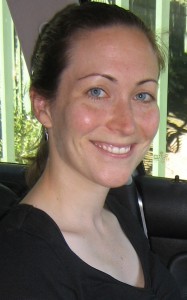By Claire Klieger
Remember getting caught up that build up to prom night fervor of “I must have a date!” because you’re pretty sure that your social future as you know it depends upon not looking like the loser that no one wanted to take to Prom? Perhaps (though probably not) even now you have the occasional Carrie-esque nightmares?

For many seniors I’ve recently spoken with, it seems like the job search, especially during the OCR season, produces similar levels of anxiety. It may feel as though every person you know is telling you that you need to have a job and in a tough economy, pickings may be slim. You may have noticed frenzied-looking individuals resembling Penn students except for their oddly formal dress darting all over campus (sometimes the sea of stressed dark suits reminds of me zombies who instead of mumbling “brains, brains, brains” chant “jobs , jobs, jobs”) or you might be in the midst of that tidal wave, yourself.
The on-campus recruiting process is very intense and it moves quite quickly –you go through all of these rounds at lightning speed and before you know it you (hopefully) have an offer and you think, wow, how did I get here? And, it’s wonderful (and safe) to feel like you have an offer and don’t have to worry about your future after graduation.
But I’m here to tell you NOT to play it safe. That doesn’t mean if you get a job offer through OCR that you’re thrilled with that you should say no because there might be something better that comes along. By all means, if getting that phone call causes you to literally jump for joy and the idea of seeing their business cards with your name on them makes you salivate, accept and congratulations to you. However, if your reaction to an offer is more along the lines of well, it’s nice that somebody wants me; at least I’ll have a job (á la, at least I’ll be going to prom), think long and hard about whether or not you should say yes.
Again, let’s think back to those painful high school years. Were you so worried about having a prom date that you said yes to the first person who asked you even though you weren’t so excited about the offer? So, secretly you hoped that someone else better would come along and ask you. And, maybe someone did and you ended up having to crush the heart (and ego) of the person who had originally asked you. In the end, while not as drastic or ridiculous as in the film 1970s classic Stephen King horror film Carrie, there was probably lots of drama. In the job search, the stakes are actually higher. There are real and potentially severe consequences to reneging on a job offer later.
So, if you get an offer that you’re not sure you’re excited about, do not say yes just to have “something” for when you graduate. In the long run, you and your potential employer will be far better off waiting for the right proverbial prom date offer.









